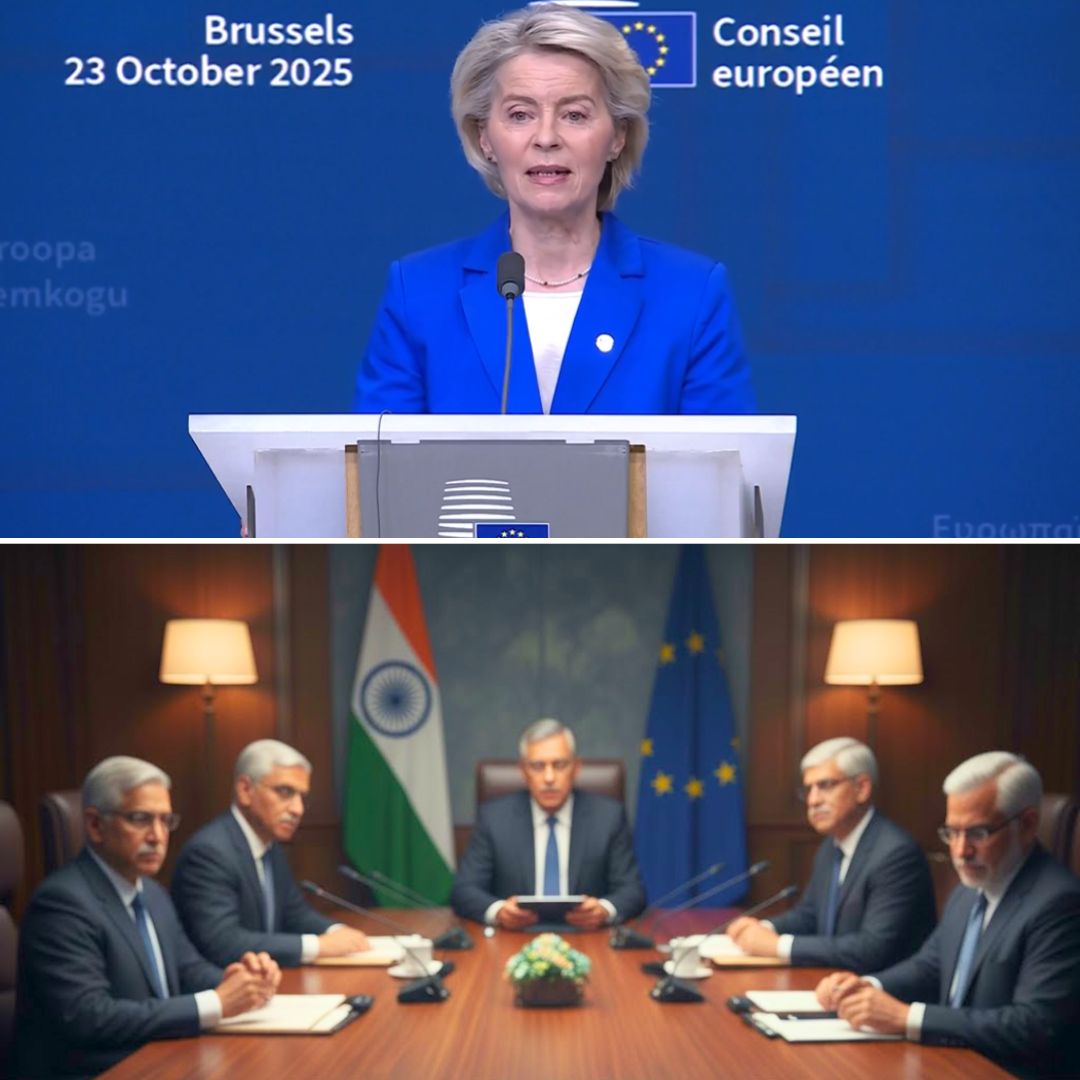In a significant move reflecting its unwavering stance against Russia’s ongoing invasion of Ukraine, the European Union has adopted its 19th comprehensive sanctions package-a set of measures aimed at further crippling Russia’s war economy and constraining its military capabilities.
Announced on October 22, 2025, this package represents the most extensive and targeted set of restrictions since the conflict began in 2022. It intensifies existing measures and introduces new bans across sectors such as energy, finance, military-industrial complex, and digital services.
The core objective remains forcing Russia into economic isolation, disrupting its ability to sustain its war effort, and holding accountable those involved in war crimes, including illegal deportation and forced assimilation of Ukrainian children.
Notably, this package introduces the first-ever sanctions on crypto assets linked to Moscow, underpinning the EU’s effort to close close loopholes that Russia might exploit to circumvent sanctions.
Key Measures and Sectoral Targets
The new sanctions package significantly expands the EU’s restrictive regime across multiple sectors. The most impactful element is the comprehensive ban on Russian Liquefied Natural Gas (LNG) imports, set to take effect from January 2027.
This move is designed to hit Moscow’s energy revenue, a vital source of its war funding, by prohibiting both short-term and long-term LNG contracts. The EU aims to eliminate its dependence on Russian fossil fuels gradually, with the LNG ban as a crucial part of this strategy.
In addition to energy, the package expands restrictions on the financial sector. It targets five Russian banks-including VTB and Rosselkhozbank-by adding them to the transaction ban list, effectively barring other EU financial institutions from engaging with these entities.
The measures also prohibit payment systems like Mir and SBP, which have been used to bypass traditional banking sanctions, along with a new ban on cryptocurrencies, especially stablecoins like A7A5, developed by sanctioned entities like A7 LLC. This is a pivotal step, as it attempts to address the growing use of such assets for circumventing older sanctions.
Further, the sanctions target offshore financial operators supporting Russia’s war economy, including cryptocurrency exchanges in Paraguay and Kyrgyzstan involved in facilitating transactions for sanctioned Russian and third-country entities. The measures also include broader export restrictions-covering dual-use technologies, metals used in weapon manufacturing, and construction materials-adding around EUR 155 million worth of banned exports in 2024 prices.
These restrictions aim to weaken Russia’s military-industrial complex from multiple angles, cutting off supplies of critical components needed for weapon systems, drones, and other military equipment.
Sea and Air Fleet Restrictions
A major component is targeting Russia’s naval capabilities. The sanctions package has expanded the list of vessels associated with Moscow’s shadow fleet-a covert maritime network used to transport goods and circumvent international sanctions-raising the number to 557 ships, with stringent measures against reinsurance and maritime insurance.
The EU also introduced restrictions on Russian aircraft and vessel re-insurance services for up to five years post-sale, designed to prevent Russia from resupplying its fleet and maintain maritime blockade efforts.
Crackdown on Circumvention and Additional Listings
Efforts to prevent sanctions circumvention form a central pillar of this measures package. A total of 45 entities-including 28 Russland-based companies and 17 located in third countries like China, India, and Thailand-are now targeted for supporting Russia’s military industrial complex or helping bypass restrictions.
Notably, 12 of these entities are based in China (including Hong Kong), while three are located in India, marking a global push to tighten enforcement and accountability.
Alongside these, 69 individuals and entities face asset freezes, travel bans, and restrictions on their economic activities. These include Russian oligarchs, energy conglomerates, military suppliers, and actors involved in the illicit deportation of Ukrainian children.
In a bid to intensify accountability, the EU introduced a new listing criterion specifically addressing the abduction and militarized indoctrination of Ukrainian minors, marking an expanded scope of sanctions for human rights violations.
Special Economic Zones and Diplomatic Measures
The sanctions extend to Russia’s Special Economic Zones (SEZs), where economic activities are now further limited. Contracts with entities within certain zones like Alabuga and Technopolis Moscow are banned, with even existing agreements subject to termination, to prevent war-related manufacturing.
Another notable measure involves tightening diplomatic movements: Russian diplomats must now inform EU member states in advance of travel plans beyond their host country. This aims to address espionage activities supporting Moscow’s war effort, reducing intelligence gathering and hostile covert actions within the EU.
Implications and Global Response
The EU’s sanctions set a precedent, emphasizing the importance of multi-layered economic pressure in modern conflicts. By expanding the scope to include crypto assets and offshore entities, Brussels aims to prevent Russia from exploiting international financial networks.
The measures also carry broader geopolitical weight: they seek to weaken Russia’s war capabilities while compelling third countries-particularly China, India, and Middle Eastern nations-to align with international norms against aggressive conflict.
While most EU member states have expressed strong support for these measures, India’s government has yet to issue an official comment on the sanctions targeting Indian firms. Diplomatic experts suggest New Delhi will continue to evaluate the situation, balancing strategic ties with Moscow and commitments to global trade regulations.
This situation exemplifies the complex challenge faced by countries that seek to assert moral leadership in international sanctions regimes without jeopardizing economic sovereignty.
The Logical Indian’s Perspective
The EU’s decision to impose its most comprehensive sanctions package yet signals steadfast global support for Ukraine and condemnation of Moscow’s invasion.
These measures aim to strangulate Russia’s war economy from multiple angles, from energy revenue to advanced technology supplies, and even financial networks. However, they also underscore the necessity for international cooperation and fairness, especially considering the critical role of countries like India and China.













